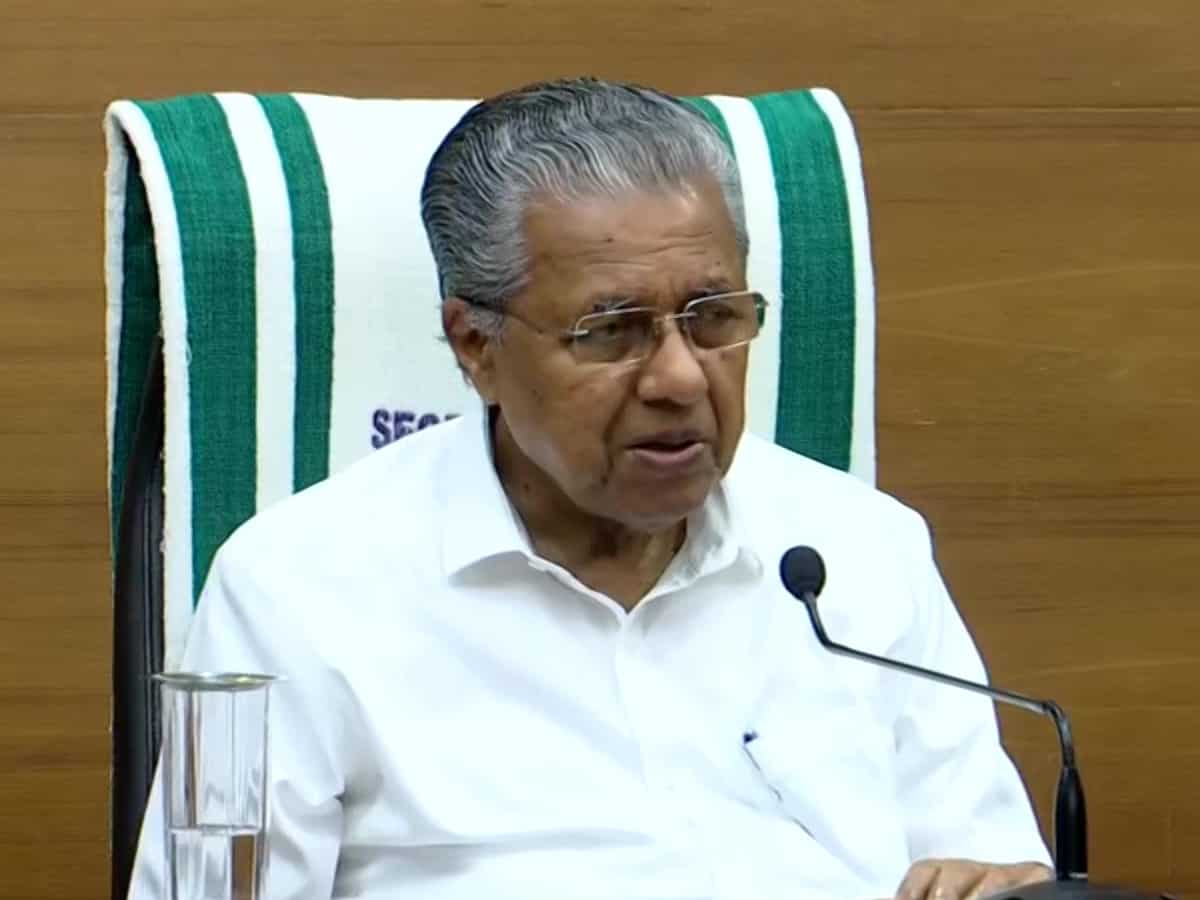
Thiruvananthapuram: Kerala Chief Minister Pinarayi Vijayan on Wednesday highlighted the prevalent information asymmetry in the current world order, which hinders the dissemination of models that address various challenges.
Speaking at the 20th anniversary of the Globelics international conference, he emphasised the importance of global connectivity for sharing ideas.
Vijayan announced that his government has declared internet access as a citizen’s right and established the Kerala Fibre Optic Network, aiming to overcome barriers related to physical, social, regional and financial factors.
He said his government was working to ensure that the society was connected to the global information highway, so that ideas can be freely assimilated and disseminated.
“To enable that, we declared access to the internet as a right to our citizens, and established the Kerala Fiber Optic Network. This network ensures that all can enjoy the right to the internet, overcoming the barriers imposed by physical, social, regional or financial factors. It is yet another first-of-its-kind experiment in our country,” he said.
He described this initiative as a pioneering effort in India.
Vijayan said there were several such interventions from the Global South that have become models to the world.
“However, the prevalent information asymmetry in the current world order often serves as impediments to propagating and popularising such models,” he claimed.
The chief minister urged the conference to deliberate on interventions needed to amplify the visibility of successful models from the Global South.
He lauded Kerala’s achievements in health, education, and Sustainable Development Goals, asserting the state’s unparalleled performance in poverty eradication and providing skilled manpower.
Vijayan credited Kerala’s successful development model to a rich tradition of collective learning, renaissance movements, progressive campaigns, and various intervention programmes.
He also acknowledged the challenge of creating vibrant economic sectors for generating employment opportunities within Kerala, emphasising the role of science, technology, and innovation in achieving this goal.
The chief minister expressed satisfaction that scholars from around 50 countries were presenting their research outcomes at the event and appreciated their engagement with universities and colleges to share insights with the next generation.



